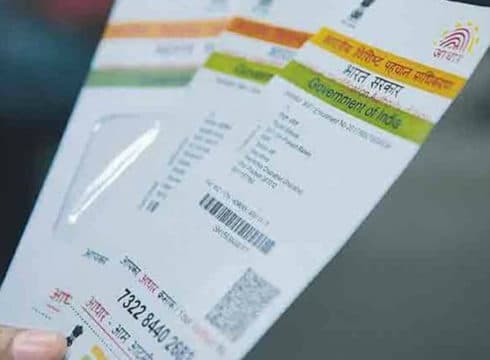The Supreme Court of India’s five-judge constitution bench is set to give the Aadhaar verdict today (September 26)
The historic judgement will dwell on the legality of Aadhaar (Targeted Delivery of Financial and Other Subsidies, Benefits and Services) Act, 2016
In January 2018, the SC Constitution bench started the final hearing on a batch of petitions that challenged the Aadhaar Act
Inc42 Daily Brief
Stay Ahead With Daily News & Analysis on India’s Tech & Startup Economy
Update:
The Supreme Court upheld the constitutionality of Aadhaar while ruling that it is mandatory only for filing income tax returns and for the allotment of PAN. It won’t be essential for opening bank accounts or getting SIM cards from telecom operators. Read the full story here!
September 26, Wednesday, is likely to go down as a historic day in the Indian judiciary. After holding a 38 days of hearings this year — the second longest hearing in India’s judiciary after the Kesavananda Bharati Case, 1973 — and deliberating for five months, a five-judge Constitution bench of the Supreme Court (SC) of India is finally set to give its verdict on the constitutional validity of Aadhaar, the 12-digit random unique identification number issued to more than 1.22 Bn people in India.
The much-awaited judgement will dwell on the legality of the Aadhaar (Targeted Delivery of Financial and Other Subsidies, Benefits and Services) Act, 2016, and whether the making Aadhaar mandatory which seeks the biometric data and other information from every citizen, violates the Right To Privacy as one’s fundamental right.
In January 2018, the Constitution bench started the final hearing on a batch of petitions clubbed with Puttaswamy case that challenged the Aadhaar Act (introduced in the parliament as the money bill), on the grounds that it violates an individual’s fundamental right to privacy.
It’s worth noting that the government had earlier made Aadhaar, mandatory for availing a host of benefits such as BPL, LPG subsidy, midday meal etc being extended by the government. This followed the diktat of private companies asking people to link their Aadhaar with their services such as banking, payments, SIM cards etc as ordered by the Supreme Court.
The Supreme Court had later clarified that it had never given any such order.
Former Judge of Karnakata High Court Justice KS Puttaswamy along with a host of other petitioners opposed the government’s move of making Aadhaar mandatory for availing social security benefits and other services.
Aadhaar ID has become mandatory for rations, cooking gas, and payments for the national job guarantee scheme. It is also instrumental for banking services, telephone connections, filing tax returns and making digital payments, among others.
During the hearing in March, the apex court extended the deadline to link Aadhaar card to mobile phones, bank accounts, tatkal passports, etc. till it reaches the decision on petitions challenging the constitutional validity of the Aadhaar Act.
The SC’s decision did not go well with digital payments companies, as this has created confusion in the digital payments sector, especially since the RBI refused to extend the deadline, which stood for March 31.
The Supreme Court had also asked Unique Identification Authority of India (UIDAI) to give a presentation aimed to identify the misgivings related to security of the data collected under the scheme and remove them.
UIDAI Chief Ajay Bhushan Pandey claimed that it was “difficult to misuse an Aadhaar card because it has a hidden barcode that carries details of the original holder.”
Also, no third party can either store or save a person’s data during authentication and neither can anyone access these authentication details, he claimed.
However, there have been several instances showcasing Aadhaar security flaws. Recently, the Telecom Regulatory Authority of India (TRAI) chairman, Ram Sewak Sharma, had tweeted his Aadhaar details challenging hackers to do any harm to him on the basis of his Aadhaar ID.
Twitterati reacted instantly by making Sharma’s mobile numbers, WhatsApp profile image and bank account details public.
With several instances of Aadhaar leaks lined up and defenders’ claims touching the roof, the Supreme court’s decision has been much awaited.
The Justice KS Puttaswamy case writ petition (civil) no(s) 494/2012 has already made history as the 9-judge bench of Supreme Court, while hearing the case, recognised Right to Privacy as a fundamental right, last year. Today’s decision will now seal the Aadhaar fate, its legitimacy, the scope of uses without violating one’s Right to Privacy — another historic judgement — under Chief Justice Dipak Misra who has already entered his last week as the chief of Indian judiciary.
{{#name}}{{name}}{{/name}}{{^name}}-{{/name}}
{{#description}}{{description}}...{{/description}}{{^description}}-{{/description}}
Note: We at Inc42 take our ethics very seriously. More information about it can be found here.


